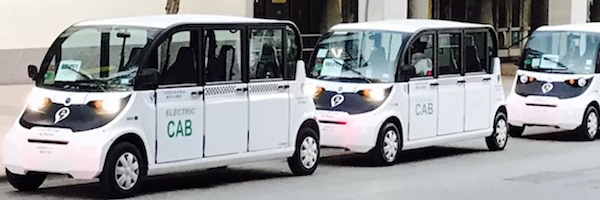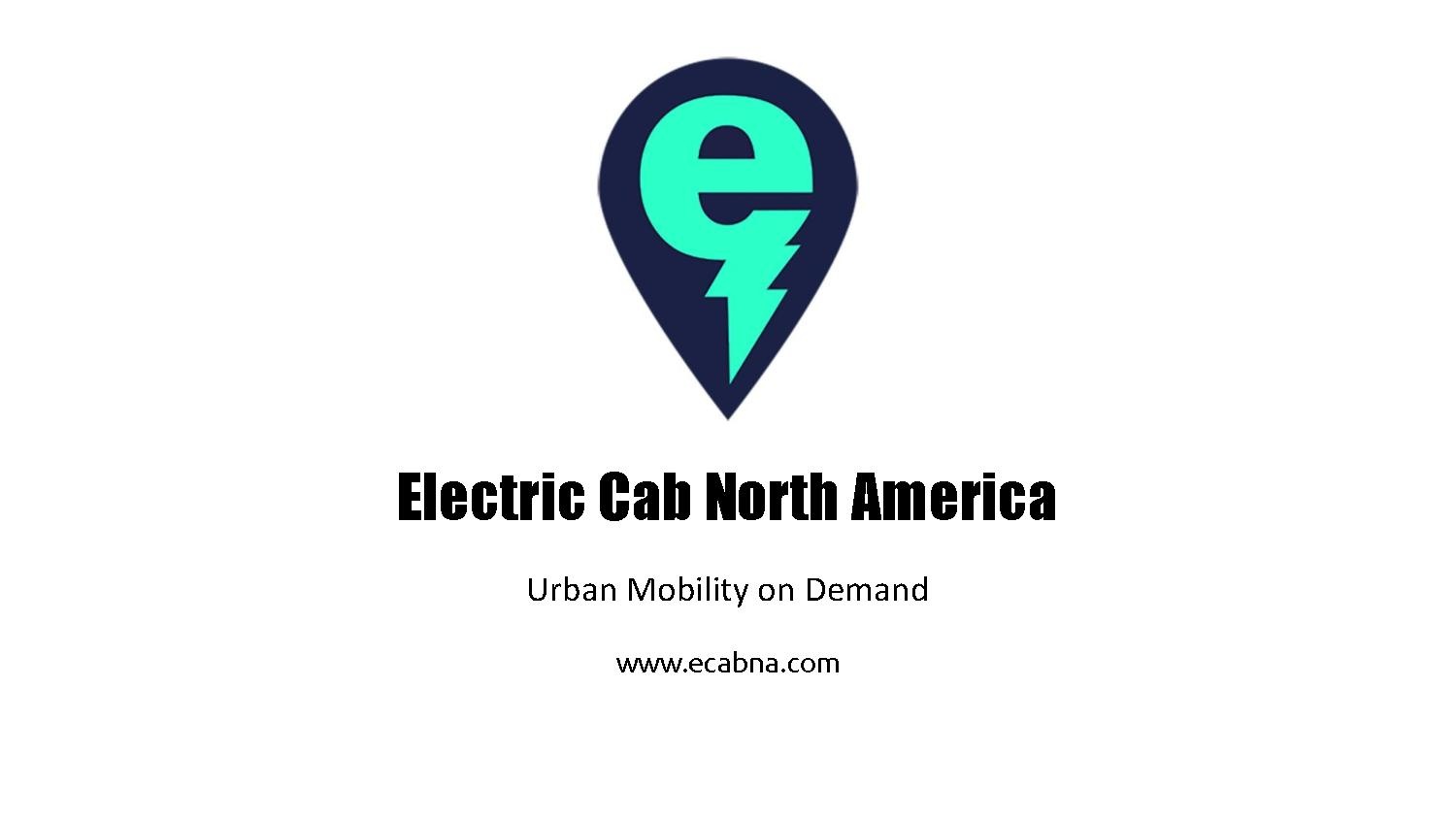Urban Circulators utilizing Low Speed Electric Vehicles
| Urban Circulators utilizing Low Speed Electric Vehicles | |
|---|---|

| |
 ecab in Austin | |
| Team Organizations | Electric Cab North America |
| Team Leaders | Kris Bailey |
| Participating Municipalities | St. Louis MO Kirkwood MO |
| Status | Launched |
| Document | 
|
Description
Urban Circulators utilizing LSEVs (Low Speed Electric Vehicles) as first/last mile solution in conjunction with public transportation, to serve transit deserts, food deserts and reach underutilized areas of medium to large cities. The scalability of the project would be able to translate to business complexes, universities and hospitals, to transport their customers and reduce traffic congestion. The environmental impact in using electric vehicles would reduce gas emissions.
Challenges
Challenges for public transportation include getting people to the transit stop or Park and Ride. By providing the circulator, customers would use their vehicles less, spend less money on gas, and help to curb CO2 emissions that are detrimental to the environment.
Solutions
- Step 1: Outlining the model
- Step 2: Bringing together stakeholders
- Step 3: Identifying facilities to store vehicles during “off hours”.
- Step 4: Identifying staff, training and providing support.
- Step 5: Implementation.
Major Requirements
- Step 1: Outlining the model
- Step 2: Bringing together stakeholders
- Step 3: Identifying facilities to store vehicles during “off hours”.
- Step 4: Identifying staff, training and providing support.
- Step 5: Implementation.
Performance Targets
| Key Performance Indicators (KPIs) | Measurement Methods |
|---|---|
|
Provider will gather data statistics on ridership and time. Public Transportation system staff will provide public transport use for comparison. |
Standards, Replicability, Scalability, and Sustainability
- Project entails several partners working together to deploy.
- Project would provide a standard for first/last mile solutions that can be implemented in a fairly quick and seamless connection with public transportation.
Cybersecurity and Privacy
The dispatch software used for the demand-responsive, dynamic routes is secured with a 128bit SSL security. The software maintains security through use of passwords for both the user and driver interfaces and information is kept secure by the administrator. Only two company administrators have access to all customer and driver information, keeping their own logon information secure.
Impacts
- Project provides jobs for drivers and maintenance techs.
- Environment is impacted with use of fully electric, emission-free, vehicles.
- Provides rides to ADA customers unable to walk distances impacted by service.
Demonstration/Deployment
- Phase I (Pilot/Demonstration) June 2016: The project has been piloted in a business complex (Domain NORTHSIDE) in Austin, Texas (Electric Cab HQ), from 12/2016 through present. The model is being replicated in St. Louis, MO as the MX Circulator, providing the stadium crowds access to shopping and dining in the adjacent MX shops without having to use their cars.
- Phase II (Deployment) June 2017: Project is in planning stages for deployment in the CORTEX complex in St. Louis, MO, as well as SLU-Law School.
Update
- Kirkwood, MO jumped on board October 2017 to connect the train station to the rest of Downtown Kirkwood and alleviate parking. The project ran from October 2017 to December 2017, very successfully, and is now being brought to full service by the city council. Full deployment is estimated to begin April 2018.
- Two circulators connecting the Capital Metro MetroRail Kramer Lane station to the Domain Northside shopping complex and large businesses within and nearby (Homeaway, IBM, Charles Schwab), and the Downtown station tackling the last mile destination for commuters in the Central Business District.